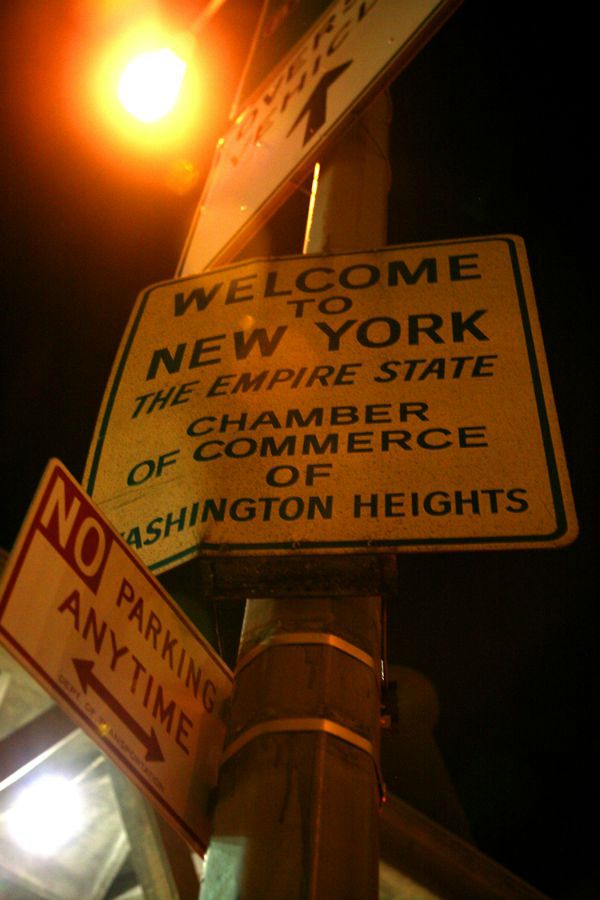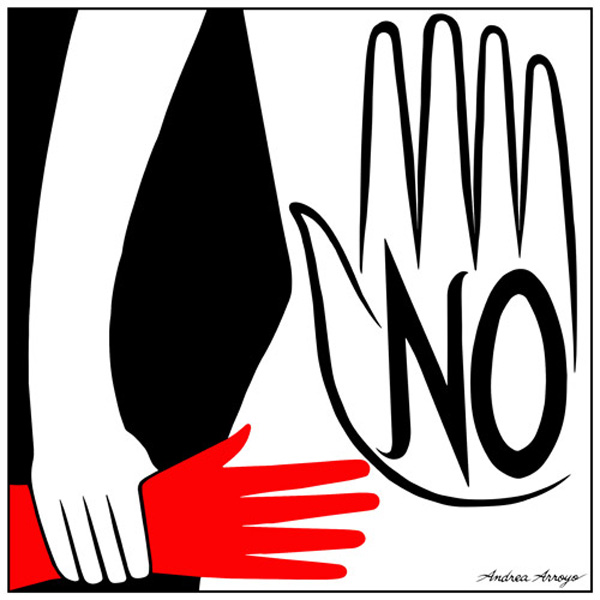BY John Bredin
Funny but, whenever I’m in the Heights, I don’t miss being in those other, so called fancy or chi chi neighborhoods of NYC. You know which ones. I don’t need to name drop here. Washington Heights, for me, = a strange feeling of liberation. Allow me to explain.
While other parts of the city are growing too hyper-competitive and inhumane, with mom and pop shops getting knocked off by big real estate like ducks in a barrel—and replaced by soulless chain stores, banks, and condos so expensive only a Saudi prince, hedge fund manager, or Russian mafia chief can afford one—the Heights is one of the last Gotham neighborhoods that still feels Gotham: where a classic sense of “old New York” character, charm, grit, and spirit are still palpable. No wonder Lin-Manuel Miranda’s 2008 Broadway musical In the Heights won a Tony and was nominated for a Pulitzer.
A big part of the Heights magic, for me, is the feeling of democracy I experience here. And, if truth be told, I also make democracy happen here, as a part-time English professor at Boricua College on Audubon Terrace. On day one of class, I instruct my students to arrange our desks in a circle—the “architecture of democracy”—to create a more liberating, humanizing, Socratic learning environment.
Oh, and speaking of Socrates, did you know that the historic cluster of Beaux Arts masterpiece buildings that make up Audubon Terrace at 155th and Broadway (built between 1898 and 1930), which include the Hispanic Society of America and the American Academy of Arts & Letters…oh la la!….were originally designed to be, are you sitting down: the American Acropolis!
Calling all ye Heights thinkers, put your togas on and meet me at Audubon Terrace!
Another great place for democracy in the Heights, in addition to my classrooms, is an amazing café called Taszo that is much more than a café. It is a life changing, transformative experience. When you walk into Taszo you’re struck by the rarest of sights in our fragmented, corporatized age of i-podded alienation: people actually talking to one another! Yes, folks, you heard it here first. All New Yorkers haven’t devolved into automatons, yet. Strangers still talk to one another. At least they do at Taszo….in the front room, that is. Laptoppers, though not banished, are politely invited to set up shop in the back by a tasteful sign that begins with a quote from Mark Twain: “Work is a necessary evil to be avoided, but if you must….”
The owner of Taszo is a nice man named Haitem who, if you ask me, is the real mayor of Washington Heights. Imagine, he even greets you by name when you walk in the door! It is because the Tunis-born Haitem spent time in Sweden, where everything happens in the cafes, that he felt inspired to create a rare bastion of humanizing, intellectual, European-style café culture right here in New York where, oh my goodness, we really do need it the most now. Only problem, Haitem, is that you have spoiled me for other cafes; which, in contrast to Taszo, seem so lacking in social possibility.
The other day at Taszo, chillin before my class at Boricua, I grooved to a version of Elvis’s “Blue Suede Shoes” that you rarely hear played—the loose, funky, live version from his 1968 tv “Comeback Special.” Turning to a bright young man sitting next to me, I mentioned this curious fact, which began an hour-long fascinating conversation. Turned out he plays clarinet in the West Australian Symphony Orchestra, is vacationing in New York and staying with friends in the Heights. Mind you this is not an unusual occurrence.
In the 3 months that I’ve been going to Taszo, I’ve chatted with an incredible assortment of creative types that, I’m sorry, you just don’t find in other cafes or even other parts of the city anymore: actors, musicians, writers, you name it.
Another key ingredient of the Heights democratic chemistry is the large population of Latin American immigrants who reside here. Can’t afford a trip to South America or the Dominican Republic? Hop the 1 train to 157! Ok, as a self-confessed gringo married to a Colombian woman, I might be predisposed with a loving feeling toward Latin America. And yet, intellectually, it was also a famous South American educator and philosopher named Paulo Freire who gave me the foundations for my democratic teaching life. Once an educational consultant at Harvard, in his masterpiece treatise Pedagogy of the Oppressed (1970) Freire urged educators to put social justice at the center of their teaching vocation; to “teach for a world in which it’s easier to love.” Once at the Sweet Life café on Broadway, the Latina woman behind the counter got happy when she saw me strike up a conversation with a total stranger in front of her. In her happiness at this simple miracle of human connection, unfolding in front of her in real time and not on an i-pod, she gave us each a free celebratory cookie! Nothing like this has ever happened to me anywhere else in New York.
Come to the Heights, even (and especially) you jaded ones: and learn how to be more human!
Any talk of democracy and the Heights would be incomplete without mentioning that George Washington himself directed his New York campaigns during the Revolutionary War from right here, at the Morris-Jumel mansion, now situated in a beautiful green park on a bluff where you can see for miles and miles. Where Big George could see what was coming at him. Damn straight! Even though we won that war, American democracy is currently under threat by the corporate domination of our political process, media, and education systems. All good citizens must keep our minds and bodies straight to see what’s coming at us on this front too. Too bad Malcolm X didn’t duck that bullet at the Audubon Ballroom, also in Washington Heights, on that sad day in 1965. We might be a freer country today. Recently, I learned of another fascinating historical-political aspect of the Heights. When he appeared as a guest on my weekly tv show Public Voice Salon, Stephen Eric Bronner, a noted political philosopher and Rutgers professor—who grew up speaking German in the Heights on Cabrini Avenue—informed me there was once such a rich presence of German-Jewish intellectuals in the Heights, mostly refugees from Hitler’s Germany, they referred to the neighborhood as “Frankfort on the Hudson.”
As an optimist and bit of a utopian thinker at heart, allow me to strike a hopeful note. I was so excited the other day at Boricua when one of my students, inspired by my talk of Erich Fromm in class, took a copy of The Sane Society (1955) out of the library. He told me it’s the “best book he ever read!” Fromm, for those unfamiliar with his work, was an important 20th century psychoanalyst, philosopher, critical thinker and Democratic Socialist. He was a key member of the notable Frankfort School of philosophy. He also happened to be an amazing writer and was that rare intellectual who wrote for a popular audience. His work on alienation, and strong critique of capitalism—showing how it’s antithetical to love and creates lonely, depressed, “automaton persons”—is especially relevant today in our era of hyper-capitalism.
Savoring this amazing teaching victory, which occurred in Washington Heights, I now feel a biographical fragment of family memory rising to consciousness. My beloved 94-year-old Hungarian grandmother, who lives in Fort Lee, NJ, recently told me that her happiest years were as a young gal living in the Heights in the 1940s and 50s. She fondly recalls seeing the Andrew Sisters at the Audubon Ballroom. My grandmother, who always bought me books when I was a kid and encouraged me to read, was my first great teacher. A few years ago, she handed me a copy of the first short story I ever wrote, as a boy of 8, which she lovingly saved all these years. Titled “The Horse Player,” it’s a tragicomic story about my black sheep, fun loving uncle Ally: who drank, played the horses, and even befriended the infamous wiseguy Crazy Joey Gallo. He ran bets for Joey at Belmont; yes, the same Crazy Joe who Jimmy Breslin based his 1969 novel The Gang that Couldn’t Shoot Straight on (later a 1971 movie with Robert Deniro); and who gets honorable mention in Ray Liotta’s voiceover at the start of Goodfellas.
The first time my grandmother referred to uncle Al as a real life “Damon Runyan character” I was hooked! Even during the dangerous 1980s when the Heights was the “crack capital of the world,” I continued to venture there (adventure!) to visit my uncle Al—who lived at 169th and Broadway, near the Reme Diner. Though not college educated, uncle Al was a self-taught Greek scholar. “The Greeks had all the themes, Johnny,” he once articulated to me, in his tough guy New York swagger.
So, as America strives to revitalize its democracy, and New York tries not to become Abu Dhabi West, I propose we revisit the notion of Audubon Terrace being the American Acropolis: a place of philosophical dialogue, discussion and debate. We need a convergence of ideas, passion, and good money uptown to finance the construction of educational, cultural, social, and media institutions that will educate, uplift, inspire, and liberate people; drawing on the Heights’ incredible eclectic history, while questing toward its future glory days of what it still might become.
And let’s never forget the Native American Indians, who lived here first, and had the Island stolen from them by the Dutch on a very bad real estate day for them in 1626: just north of the Heights in what is now Inwood Hill Park. A boulder and plaque mark the spot. When I look out my classroom window at Boricua, amazingly, I see the names of Indian tribes on the side of what was the original Museum of the American Indian; now relocated downtown to Bowling Green. The presence of these Indian names helps me to educate my students. Look, out that window, see what it says: Algonquin, Iroquois, Shoshone. Never forget. Never forget. Work to make better. Our politics. Our democracy.
Mend. Heal. A special thank you to my friend Jean-Louis Bourgeoius, who told me he plans to give back to the Lenape Indians a piece of land from his property in Greenwich Village. If more people would be nice like that we’d have a better world.
John Bredin is an educator, writer, public speaker, and host of the weekly cable tv show Public Voice Salon. His recent lecture series, the “Democratic Transformations Victory Tour,” made stops at Sisters Uptown Bookstore & Culture Center and Word Up books. John’s previous essays have appeared in the Brooklyn Rail, New York Press, Evergreen Review, and Huffington Post. He can be reached at [email protected].
We invite you to subscribe to the weekly Uptown Love newsletter, like our Facebook page and follow us on Twitter, or e-mail us at [email protected].




